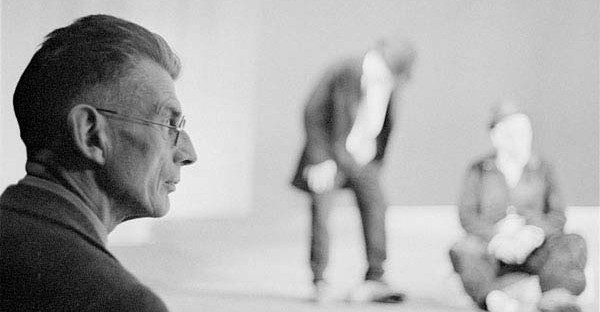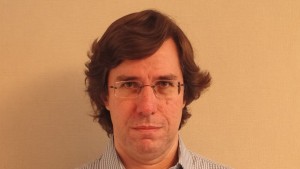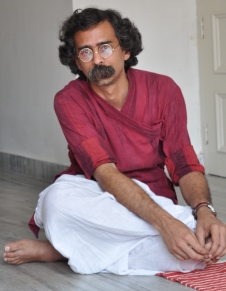Professor Stanley E. Gontarski
Professor Stanley E. Gontarski is the Robert O. Lawton Distinguished Professor of English at Florida State University. He specialises in Twentieth-Century Studies, particularly in British, U.S., and European Modernism, and in Performance Theory. Gontarski is one of the most internationally renowned scholars of Samuel Beckett and has published extensively on his works. He has edited several books and important journals, such as the Journal of Beckett Studies from 1989-2008, The Grove Companion to Samuel Beckett with Chris Ackerley, the revised edition of On Beckett: Essays and Criticism, Beckett after Beckett with Anthony Ullmann, A Companion to Samuel Beckett, The Beckett Studies Reader, Transnational Beckett, The Edinburgh Companion to Samuel Beckett and the Arts, and he is the general editor of four ongoing series, amongst which one is Other Becketts. He has also introduced and edited several of Beckett’s works, including the The Theatrical Notebooks of Samuel Beckett, Volumes II & IV, the Grove bilingual edition of Waiting for Godot, The Complete Short Prose 1929-1989, and Nohow On: Company, Illl Seen, Ill Said, Worstward Ho.
Apart from all his publication and research, Stanley Gontarski also corresponded with Samuel Beckett from the late 1970s, and it was on his request that Beckett wrote his short play Ohio Impromptu in 1980. Furthermore, he took part in early discussions, which included Beckett himself and Barney Rosset, of the possible publication of Eleuthéria, and he later wrote the introduction to the play for Foxrock Books. Since then, Professor Gontarski has taught and spoken about Beckett’s works in countries and universities around the world, including the United Kingdom, United States, Ireland, Poland, and Brazil.
You can read some of Stanley Gontarski’s essays following the links below:
“Viva, Sam Beckett, or Flogging the Avant-Garde“, Journal of Beckett Studies 16: 1, p. 1-10.
“Redirecting Beckett“, The Tragic Comedy of Samuel Beckett: Beckett in Rome, p. 327-341.
“Editing Beckett“, Twentieth Century Literature 41, p. 190-207.
“Revising Himself: Performance as Text in Samuel Beckett’s Theatre“, Journal of Modern Literature 22: 1.
Professor Fábio de Souza Andrade
Professor Fábio Rigatto de Souza Andrade is a leading scholar on Beckett in Brazil. Among his recent essays that offer a global outlook of Beckett’s works is “Facing Other Windows: Beckett in Brazil”, published in The Edinburgh Companion to Samuel Beckett and the Arts, edited by Stanley Gontarski.
He also published Samuel Beckett: o silêncio possível, where he analyses Molloy, Malone Dies, The Unnamable, and he translated some of Beckett’s works into Portuguese: Fim de partida or Endgame (2002), Esperando Godot or Waiting for Godot (2005), Dias felizes or Happy Days (2010) and Murphy (2013). As a renowned literary critic, Fábio de Souza publishes regularly in the Brazilian press (“O Estado de São Paulo”, “Folha de São Paulo”, “Jornal da Tarde”, “Entrelivros”, “Cult”). Since 2001, he has been lecturing at the Comparative Literature and Literary Theory Departments of the University of São Paulo (USP). He also supervises research projects related to Brazilian and European modernism and works as a Visiting Professor at the universities of Paris 8 and Freie Universitåt Berlin. In 2011, Fábio de Souza inaugurated “Grupo de Pesquisa Estudos sobre Samuel Beckett”, which hosts regular meetings at USP, engaging Beckettian researchers from around Brazil. In Aug. 2014, Gontarski visited the group and discussed the contemporary state of Beckettian studies from a global and interdisciplinary perspective.
Ashish Avikunthak
Ashish Avikunthak is an Indian artist and filmmaker, and his films have been shown in cinema festivals, museums, and art galleries around the world. His recent feature films include Katho Upanishad (2011), Rati Chakravyuh (2013), and Kalkimanthankatha (2015) or The Churning of Kalki, which will be screened at the Gulbenkian Cinema as part of this conference. Amongst his short films, Antaral (Endnote) (2005) is a “cinematic interpretation of Samuel Beckett’s 1967 dramaticule, ‘Come and Go'”. Set in Calcutta, the play’s conversations are translated into Hindi and performed by three women in sari, as they “reminisce about their times at school and rekindle and affirm old friendships”. Since 2005, Ashish Avikunthak’s works have been associated with the Indian “Cinema of Prayōga”, which is an alternative to the avant-garde experimental film in the West.
Apart from his career in cinema, Ashish Avikunthak is also a well published cultural anthropologist and has taught at Yale University. Currently, he dedicates his time in teaching Film and Media studies at the Harrington School of Communication and Media, University of Rhode Island, and he frequently travels to India to film his ongoing projects.
Please visit Ashish Avikunthak’s official website for more details about his films, reviews, and interviews.




